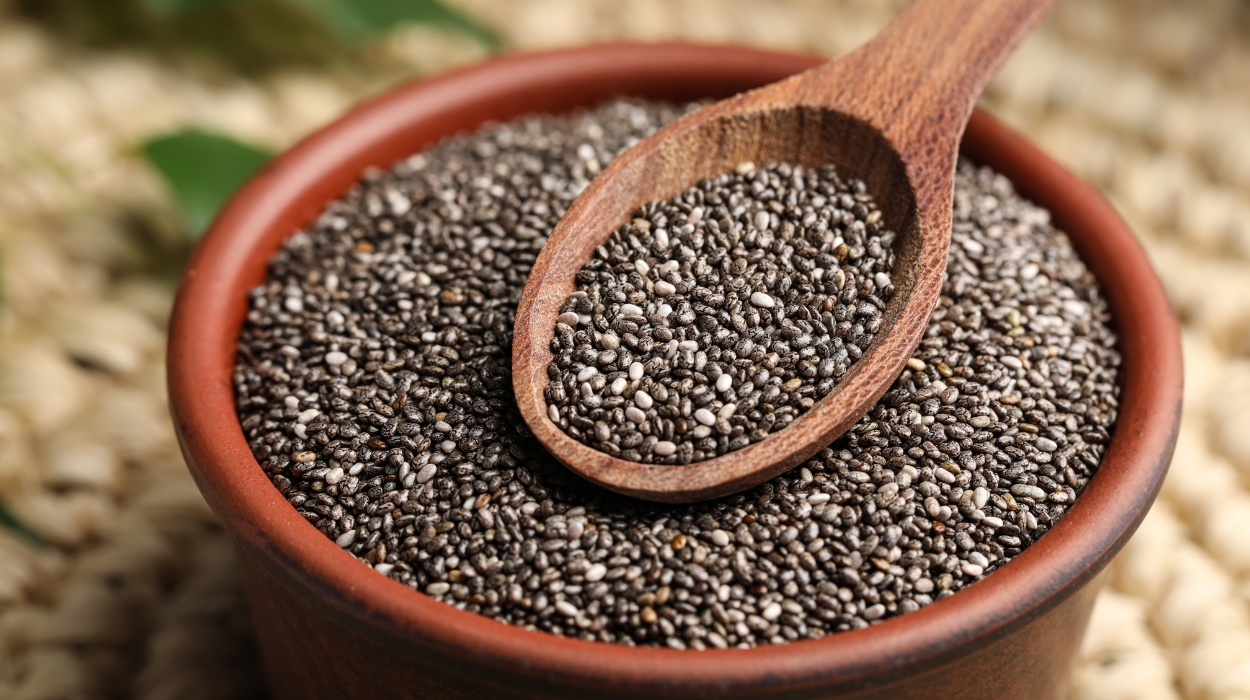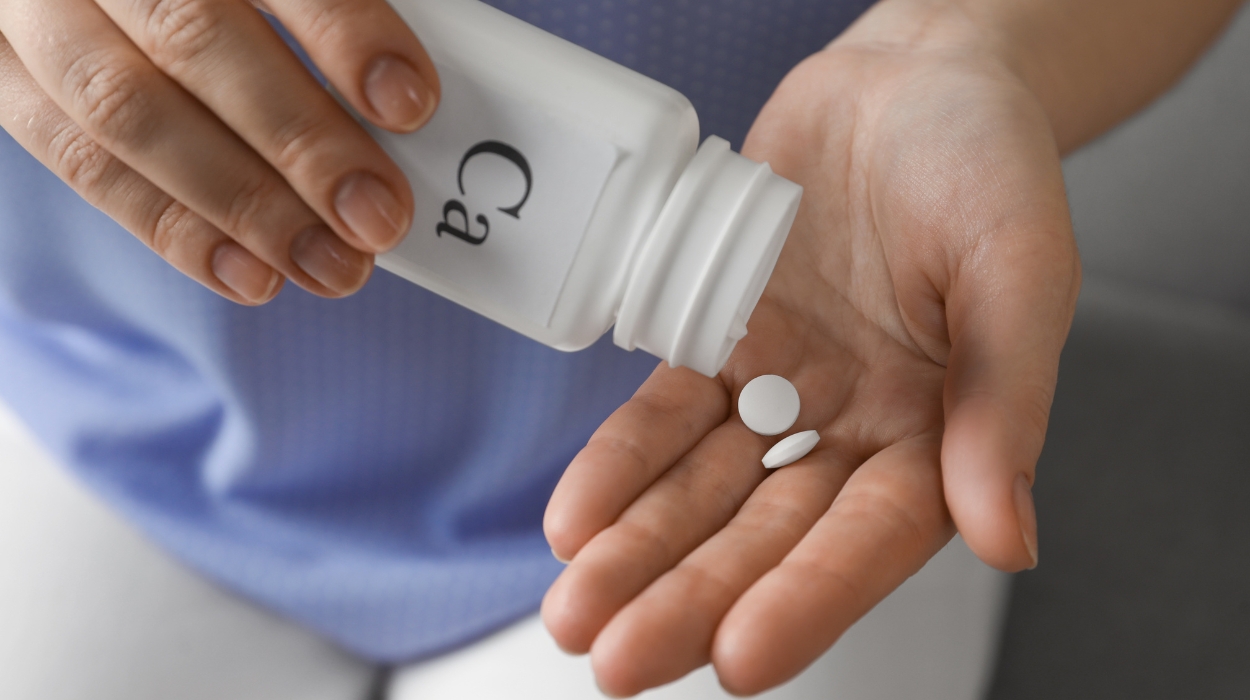Calcium is one of the most important nutrients to include in your diet, and the older you get, the more you need to pay attention to your calcium intake. Low calcium intake can cause weakening in bones and joints, muscle cramps, and dry skin.
Usually, people turn to dairy products like milk and yogurt to get their calcium. While dairy foods do contain calcium, there are other food choices out there that can add calcium to your diet along with other essential nutrients.
People with milk allergy, lactose intolerance, and those who just don’t like milk need to know how to get calcium without dairy.
10 Good Sources Of Calcium Can Replace Diary
Many non-dairy foods provide plenty of calcium. These include:
- Chia Seeds
- Broccoli
- Almond Milk
- Sunflower Seeds
- Leafy Greens
- Soy Milk
- Fortified Orange Juice
- Canned Sardines
- Canned Tuna
- Vitamin Supplements
How To Get Calcium Without Dairy?
Since calcium is such an important part of the diet, people who do not consume dairy foods may worry about their health. Luckily, there are plenty of non-dairy foods you can eat that contain as much or more calcium as a glass of milk.
Chia Seeds

Besides giving you extra calcium, there are other health benefits of chia seeds. While you could just eat them plain, there are many other strategies for how to eat chia seeds like adding them to baked goods or smoothies.
Broccoli
Broccoli is a great non-dairy source of calcium. One cup of broccoli[1] contains about 60 mg of calcium. Broccoli can be eaten raw or cooked and can be stored in the freezer without losing its nutritional value.
Almond Milk
Almond milk[2] is an excellent replacement for cow’s milk if you are looking for dairy-free sources of calcium. While almond milk only has about half as much calcium as regular cow’s milk, it also has fewer calories, less saturated fat, and no lactose.
Sunflower Seeds
Sunflower seeds are a great snack that can be enjoyed as part of a trail mix, in a salad, or by a handful. Not only are they a good source of calcium, but they also contain high levels of antioxidants, niacin, iron, magnesium, and vitamins A, B, E, and C.
Leafy Greens
One of the best things you can do for your overall health is to eat a big bowl of leafy greens each day. Kale, arugula, collard greens, bok choy, and spinach have almost the same amount of calcium as a cup of cottage cheese.
Fortified Soy Milk
Fortified soy milk can have the same amount of calcium as a single serving of cow’s milk. Many experts[3] consider soy milk the best replacement for cow’s milk due to its similar protein, calcium, and fat content.
Fortified Orange Juice
If you are one of the many Americans who like to start their day with a glass of orange juice, you are in luck. A glass of fortified orange juice can have as much or more calcium than a glass of cow’s milk.
While it is a great source of calcium, orange juice can be very high in sugar. Make sure you pay attention to the sugar content in your favorite orange juice to avoid overdoing it.
Canned Fish
Canned salmon and canned sardines are both very high in calcium. When you choose canned fish to give your calcium intake a boost, try to choose varieties that keep the edible bones in.
Vitamin Supplements
If you have a hard time getting the right vitamins and minerals in your diet, choosing a high-quality supplement can help. In addition to being a good source of calcium, a supplement can help you get enough vitamin D, which helps your body absorb the calcium you need.
You can also get calcium in the form of antacid medications like Tums. Use caution with these medications, since overusing them can lead to problems like kidney stones and dangerous heart rhythms.
Why Does The Body Need Calcium?

There is a good reason that health professionals recommend that children and adults eat foods fortified with calcium. Calcium is an important mineral for almost every body system including bones, nerves, and your general health.
Bone Health
When most people think of calcium, they think of bone health. Most adults know that getting enough daily calcium helps support teeth and bones, but may not understand exactly why.
Calcium is so important to all body systems, that if your blood calcium is low, your body steals calcium from your bones to keep other systems working well. According to Dr. Risa Kagan of Healthy Women, adults need to consume at least 1,200 mg of calcium each day in order to prevent osteoporosis.
Muscle Function
When you want to lift your arm or move your foot, your muscles have to contract. At a cellular level, muscle contraction is caused by calcium rushing into the cells. Without enough calcium in the blood, the muscles have a hard time functioning properly.
People with extremely low calcium levels may have twitching, aching, or cramping muscles.
Nerve Health
Similar to your muscles, nerves depend on calcium exchange to function normally. People with calcium deficiencies may experience numbness, tingling, or even pain in their fingers and toes. In severe cases, low calcium may even lead to seizures.[4]
Mental Health
Besides making your muscles cramp and your bones weak, low calcium can negatively impact your mental health. The Cleveland Clinic explains that having low calcium levels may cause irritability, depression, and lethargy. In extreme cases, low calcium levels can lead to confusion and hallucinations.
Blood Clotting
Anyone who has had a bloody nose or has cut themselves while shaving knows how important it is for blood to eventually clot. Without calcium, bloody noses, and paper cuts would never stop bleeding.
With low calcium blood isn’t able to clot as well, leading to bleeding problems and easy bruising.
Healthy Hair, Skin, And Nails
It might surprise you to find out that eating calcium-rich foods might also help with your beauty routine. Dry skin, dull hair, and brittle nails can all be caused by low calcium.
Dangers Of Having Low Calcium Levels
Broken Bones
The National Institute on Aging reports that at least one in five women and one in twenty men over the age of 50 will be affected by osteoporosis.[5] Osteoporosis increases the risk of broken bones, especially in the hips and spine. Low calcium levels are one of the most common risk factors for developing osteoporosis.
Weak Joints
People with low calcium levels not only have weaker bones, but stiffer muscles and more fatigue. Weaker muscles and bones can have a huge impact on mobility and joint health.
Making sure you choose the best joint supplements can also help support a healthy musculoskeletal system.
Irritability
Deficiencies in calcium can lead to brain fog and irritability. This is especially true for women suffering from PMS. In fact, a study published by Obstetrics and Gynecology Science[6] showed that calcium supplements helped improve moodiness, anxiety, and water retention in women suffering from PMS.
Dry Skin And Nails
Dry skin and brittle nails can sometimes be a result of low calcium. Adding a vitamin or a few good sources of calcium to your diet can improve your skin’s texture and appearance as well as give you healthy and strong fingernails.
Bleeding Problems
Being low in calcium makes it hard for your blood to clot. This can make a minor cut turn into a major problem. Bleeding problems can also cause you to bruise more easily, experience bleeding abdominal ulcers, or suffer serious complications after a traumatic injury.
Conclusion
You do not have to drink a glass of milk every day or eat a bowl of cottage cheese to get enough calcium in your diet. While dairy products have the highest concentrations of calcium, choosing the right combinations of other foods can help you get enough calcium to stay healthy and strong.
If you are lactose intolerant or vegetarian, a salad of leafy greens, chia, or sunflower seeds, and a glass of calcium-fortified orange juice should be enough to meet your dietary needs. Adults should consume about 1,000- 1,200 mg of calcium per day to lower the risk of osteoporosis and other health problems.
Make sure that you are also getting enough vitamin D for the calcium to be effective.
Frequently Asked Questions
Calcium is important because it keeps your bones, muscles, and nervous system healthy and functioning at their best. Low calcium levels can cause osteoporosis, muscle cramps, irritability, and even seizures.
While dairy products have the highest concentration of calcium, they are not necessarily the best choice. Many non-dairy foods contain plenty of calcium with less saturated fats and more additional vitamins than cow’s milk.
Soy milk has similar calcium, protein, and fat content to cow’s milk. Experts often consider soy milk to be the best option for people who are lactose intolerant.
 Expert's opinion
Expert's opinion
